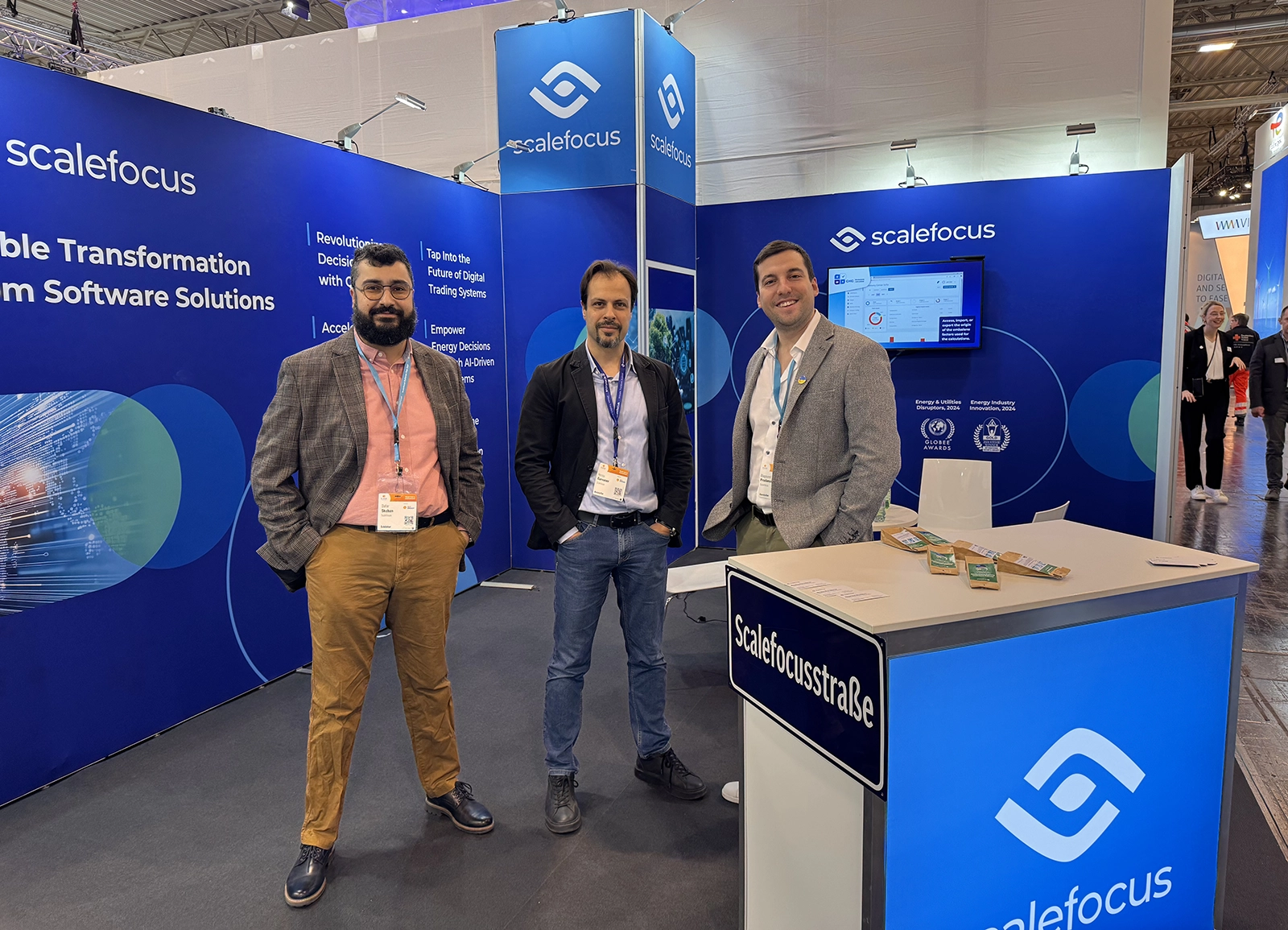In February we joined Europe’s largest energy trade fair in Essen – E-world 2025. Everyone who matters in the industry was there, sharing ideas and insights and showcasing new technology solutions and services. The event brought together 980 exhibitors from 34 nations, while 33,000 trade visitors from over 70 countries created a dynamic atmosphere.

Once more, the trade fair proved to be an excellent opportunity to stay informed about the industry’s newest advancements and to collect ideas for the future.
Renewables are now considered a mature industry
One key takeaway from E-world 2025 is that the renewables industry has matured. The focus has shifted from new investments to optimizing existing operations. Effective wind and solar power generation management and optimal use of flexible energy capacity are becoming more important than ever. The industry is now focused on selling renewable energy more effectively and storing the production from the existing facilities.
This shift gives the industry a chance to refine its solutions and lay the groundwork for future advancements, aiming for a more stable and efficient development phase.
Energy storage takes center stage
Battery Energy Storage Systems (BESS) were among the most discussed topics this year. While new solar and wind parks are still being built, the emphasis is now on managing these resources effectively. Forecasting for BESS, along with pricing strategies, was widely discussed. Investors are keeping a close eye on the growth of this sector and looking for companies that might be close to a major breakthrough in storage efficiency.
Another hot topic was PPAs (Power Purchase Agreements) for renewable electricity. An increasing number of renewable energy producers and major consumers seek to establish direct connections through PPAs without intermediaries. To facilitate this, they need to figure out how to manage energy logistics and load balance effectively.
Advanced analytics platforms are turning traders into investors
The rising trend of energy traders adopting an investor’s mindset was once more confirmed at E-world 2025. Advanced analytics platforms that help them study weather forecasts, equipment durability, consumption patterns, and other factors to shape their trading strategies were indeed among the main topics of discussion.
We have been observing this trend for quite some time. If you want to learn more about it, you can check out our article: How the Data Storm Turns Traders of Renewables into Smart Investors.
Algorithmic and short-term trading
Algorithmic, high-frequency, and short-term trading were topics closely linked to the growth of renewables. An interesting nuance was compliance within algo trading. Questions about regulation and responsibility were widely debated.
Short-term trading is experiencing its own issues, mainly because of renewables’ intermittent nature. Companies are looking for new ways to access market results to anticipate unfolding scenarios, reduce risks, and capitalize on real-time market opportunities.
AI is finding its place in energy trading, but it is more likely to enhance rather than completely replace traditional algorithmic trading. While traditional algo trading relies on predefined mathematical models, AI-driven trading can learn, adapt, and optimize in real-time, making it highly valuable in complex, volatile energy markets.
The place of AI
AI was mostly seen in the startup scene at E-world 2025, while larger enterprises remained quiet about their AI efforts. Discussions highlighted AI’s transformative role in utilities’ customer relationship management, enhancing end-customer communication through chatbots and improving grid state forecasting and pricing strategies. A significant focus was placed on the energy demands of AI technologies, especially data centers striving to transition to green energy sources to mitigate their environmental impact.
Unlike previous years, there was little discussion about EV charging, hydrogen, heating solutions, or bold new technological ideas, suggesting a shift towards consolidating existing technologies rather than exploring new frontiers.



